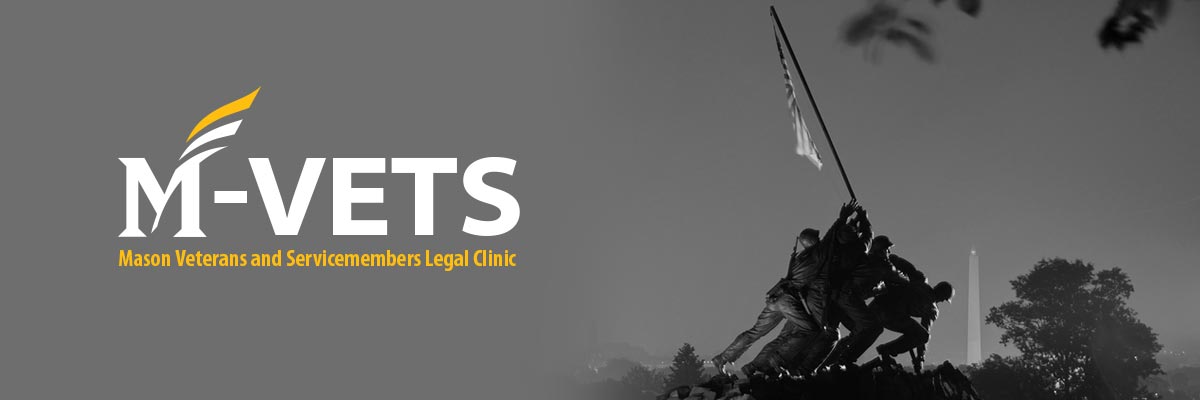By Spring 2020 M-VETS Student-Advisor Katherine Beard
Traumatic brain injuries (“TBIs”) impact thousands of military service members every year. With nearly 20,000 clinically diagnosed TBIs each year for the past five years, service members are at a higher risk of injury than members of the general public.[1] TBIs can have long-lasting, severe impacts that can become dangerous if not properly identified and treated. The problem with diagnosing TBIs is that there is no single test to concretely confirm the diagnosis of a TBI.[2] There are many symptoms that are associated with TBIs, but diagnosis of a TBI is a strictly clinical diagnosis.[3] Because of this, TBIs can be misdiagnosed and service members who may be suffering from a TBI may be not be given the immediate care they need to prevent long-lasting injury. Presently, while TBIs can be identified postmortem through changes of chronic traumatic encephalopathy, there is no concrete test for TBIs while the individual is alive.[4]
While there is presently no test to confirm the diagnosis of TBI, there has been significant progress in the scientific community towards developing a test to detect TBIs in an individual while that individual is alive.[5] Presently, there has clinical trials and research done towards developing a test to detect TBIs through the use of patient’s saliva.[6] This minimally intrusive test, once fully developed, could provide fast and accurate results to concretely detect whether an individual has a TBI.
Presently, scientists are developing a test to detect TBIs though saliva.[7] This type of test measures the levels of extracellular vesicles (“EVs”) preset in the individual’s saliva.[8] EVs travel from the brain to the oral cavity, and it is proposed that “the genetic profile of salivary EVs in patients who have suffered head trauma will differ from normal healthy controls, thus constituting a unique expression signature for” TBIs.[9] This means that an individual who may be suffering from a TBI would be able to receive a concrete diagnosis of a TBI simply through the testing of their saliva. Such a test would provide reliable ways to detect TBIs efficiently and through noninvasive means. A TBI saliva test would be groundbreaking for areas such as the military that have an increased rate of TBIs and many harmful effects that accompany this injury.
Once a saliva test for TBIs is perfected, the benefits will be many. By being able to detect TBIs early on through a noninvasive process, service members would be able to have a fast and reliable way to be diagnosed with a TBI and to have appropriate care taken. Rather than having a strictly clinical diagnosis, a concrete test will take the guesswork out of the equation. Although many of the less severe TBIs do not require medical intervention, more severe TBIs may require early treatment and monitoring to prevent lasting impacts. Testing for TBIs through saliva, at least through the initial research, appears to be a test easily performed in the wide variety of environments that our service members find themselves in. While some service members have stated that even if they were diagnosed with a TBI in the battlefield they would continue to fight due to wanting to protect the lives of their peers, a concrete test would help them know the risks they encounter through such a choice. They would have a more accurate picture of their own health and treatment necessary to accompany a TBI diagnosis.
Additionally, a concrete diagnosis of a TBI could be useful for service members collecting VA benefits upon retirement. Veterans often have a difficult time proving that a particular injury or disorder they have was directly caused by their time in service. TBIs can have long-lasting impacts that cause the veteran to need treatment and compensation to treat symptoms of the TBI years after service. With TBIs related to incidents such as blast injuries, symptoms such as headache, behavior changes, and memory loss can lead to long-term neuropsychiatric and cognitive consequences.[10] Having a TBI test available at the time the veteran was injured can provide the veteran with the concrete medical evidence they need to later file for VA benefits for lasting effects of that injury once they return home. The TBI test results would take some of the discretion out of a doctor’s clinical diagnosis and instead provide conclusive test results detailing the injury. This would make the VA’s job of service connecting related disorders more streamlined due to concrete evidence and help ensure the veteran gets the care and compensation he or she deserves.
Overall, while a TBI test is still in the developmental phase, it is exciting to see progress being made in this area. A concrete TBI test through just the use of an individual’s saliva could be potentially lifesaving and very useful for members of the armed forces who have a higher risk of injury than the average public. This type of test could help service members efficiently get the treatment they need and provide concrete medical evidence to help them receive VA benefits once retired. This test would give service members more peace of mind when it comes to evaluating their health and to minimize the harmful symptoms of TBIs going forward.
[1] https://dvbic.dcoe.mil/dod-worldwide-numbers-tbi.
[2] https://www.asnr.org/patientinfo/conditions/tbi.shtml
[3] See id.
[4] https://www.ncbi.nlm.nih.gov/pmc/articles/PMC4694720/
[5] https://www.ncbi.nlm.nih.gov/pmc/articles/PMC6478516/
[6] See id.
[7] https://www.ncbi.nlm.nih.gov/pmc/articles/PMC6478516/
[8] See id.
[9] Id.
